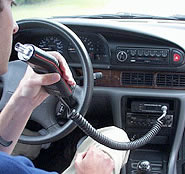In 2011, Alabama implemented the interlock device (Act 2011-613) even on a first DUI conviction if there was 1) a refusal of the breath test OR 2) motorist blew .15 or higher. However, in 2012 Act 2012-363, rescinded this. No matter how high a person’s breath test is, the interlock device would not be required upon conviction. The only exception is if there was a child 14 younger in the car at the time of the DUI. There, an interlock is required no matter what the BAC is upon conviction.

A second or subsequent conviction within 5 years requires the interlock device regardless of breath test results.
It seems on many fronts that Alabama legislature is trying to provide incentive for motorist to take the breath test upon arrest. The rationale being obvious: the prosecution generally believes a breath test makes their case stronger. To date, the data is inconclusive on whether the interlock laws are providing deterrence for drivers in Alabama.
The interlock law presents a whole new set of issues in DUI law in Alabama. It will take several posts to cover the issues. But here are the nuts and bolts:
- If a person is convicted of a first time DUI and
- has a BAC of .15 or more OR
- refuses to provide BAC OR
- a child under 14 is in the car OR
- someone else is injured
Then the drivers license shall be suspended and an interlock device to be installed for 2 years. An interlock device requires that person to “blow” into the device to determine if the driver has consumed alcohol. If there is a violation of the interlock conditions then the device must remain in the car for an additional six months.
If a person is convicted of a second DUI within five years (regardless of a-d above) then the interlock device must be installed for three years.
Another big impact is the cost of the device. It is manufactured by a private company that stands to makes tens of millions of dollars in the next few years.
The impact of the interlock device and the “double minimum punishment” highlights even the greater need to contact an experience DUI defense attorney.
Interlock Device Example
So envision this scenario: a traveling sales rep has an after work meeting with clients. He/she consumes a couple of drinks and gets pulled over on the way home. The police officer administers the purely subjective field sobriety tests (which almost every time they are given the driver “fails”). He/she is arrested (remember an arrest must be made before a breath test is given) and the driver refuses to take the breath test.
In court, the only thing needed for a conviction is the officer’s opinion that the driver was “intoxicated to the point where he/she cannot operate a motor vehicle safely.” So the defendant goes to court without a lawyer. The Municipal prosecutor says you can just plead guilty and have the case over without jail time. The defendant signs a “waiver of counsel.” Well, the driver now has to have an interlock device installed for two years.
Or a defendant hires a lawyer who doesn’t regularly practice DUI defense. That lawyer advises them to “simply plead guilty” because “you will just have to go to some classes and pay a fine.”
So a law abiding citizen who has never been in trouble his/her life has the embarrassment, burden, and loss of a job because of this new law.
And do the police have more incentive to make DUI arrests with a citizen facing stiffer penalties? Does it generate more money for the local government? How does that effect the officer when administering the supposedly subjective filed sobriety test? Common sense answers all of these questions.
